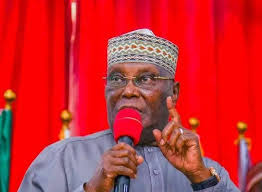News
Privatisation Of Security Apparatus

Without mincing words or shying away from the truth, there is a palpable fear in many quarters that the nation’s security apparatus as currently constituted has been designed to serve some private agenda. Obviously, every nation is concerned about its security and interests, but it is also common that some private sectional interests can feature as serving national interests. In their book titled, National Security and the American Society, Trager and Simonie defined national security as “the part of government policy having as its objective the creation of national and international conditions favourable to the protection and extension of vital national values against existing or potential adversaries”. We value what gives purpose to life!
What are the “vital national values” of Nigeria that must be protected and extended against any “existing or potential adversaries”? Values, personal or national, derive from ideological orientations, rooted in religion and culture, whose survival qualities fire and sustain national patriotism. As a developing nation, Nigeria is still trying to evolve sustainable national values serving as common impetus towards nationhood and patriotism. At best, what predominates at the moment is rooted in economic and political interests which vary according to nebulous considerations potentate need of an average Nigerian now is “stomach infrastructure”.
The Tide newspaper of Friday, June 7, 2019, had a front-page headline: “Insecurity: Danjuma, Lekwot, Others Drag Buhari to U.K. Parliament”. The issue at stake has to do with the spread of Sharia law across a secular state. References were made to “pursuing a jihad or Islamisation agenda”, Boko Haram and armed Fulani herdsmen and possible suspicion of a conspiracy, etc.
In the same newspaper of Monday, December 30, 2019, there was the following headline: “Insecurity: Reorganise Security Chiefs, NCEF Challenges Buhari”. The National Christian Elders Forum (NCEF) reminded President Muhammadu Buhari to stand by his words that the Islamic terrorists are godless, callous gangs of mass murderers by reorganising the National Security Units, to comply with the Federal Character Principle in Section 14(3) of the 1999 Constitution. This would mean that the security apparatus is one-sided, not reflecting the Federal Character Principle.
Like similar complaints before now, there were references to “excessive Pro-Islamic direction of this government since 2015”, and a recycling of “repentant terrorists into the Nigerian Army.” We were also told that “presently, Nigeria is divided under its conflict of ideologies which produced ONE COUNTRY, TWO SYSTEMS” i.e conflict between DEMOCRACY AND SHARID Ideologies. The fear is that the terrorists are emboldened and driven by Sharia ideology.
No honest person would dismiss the suspicion that there are subtle moves to introduce Sharia law into the legal system of a secular, democratic Nigeria. Therefore, the antics of Boko Haram terrorists, armed herdsmen and the Islamic of State West Africa Province (ISWAP) are the harbingers of the shape of things to come. Obviously, there would be spirited denials of any encouragement of the activities of a “remorseless, godless, callous gangs of terrorists that have given Islam a bad name through their atrocities.” Some say the terrorists are not Muslims!
Can any honest person deny the NCEF observation that “the National Security Units that are solely in control are Muslims from the North of Nigeria”? the National Christian Elders Forum also noted that “President Buhari should be held responsible for the audacity, expansion and unbridled atrocities of ISWAP, Boko Haram and Fulani herdsmen in Nigeria.” Under these aforementioned observations and circumstances, would anyone dismiss the fact that there is a privatisation of the security apparatus of the Nigerian nation?
Is it not possible that there are subtle efforts to raise or install Islamic ideology as embodied in Sharia Law as the “Vital national values” of the Nigerian nation? Taking “National security” as defined by Trager and Simonie, is it not possible that the one Sidedness of the nation’s security apparatus is a deliberate ploy to actualize some private agenda under the umbrella of national interest?
If Nigeria must put together, embrace or adopt some “vital national values”, then, must such project not follow due process, according to law? Same way that Nigeria was made to become a member of the Organisation of Islamix Conference (OIC) without a national debate and agreement is the same way Sharia Law is being introduced. It was with the same strategy, under limitary fiat, that Decree No. 51 of 1969, on oil and gas, was made as serving national interest, at the expense of a section of Nigerians. Does democracy operate that way?
It is a pity that whenever there is an effort to have a genuine national dialogue for the purpose of resolving contentious national issues, some people make deliberate efforts to sabotage or turn such a project into travesty. The result is that agitations are suppressed via the instrumentality of security apparatus and a state of anomie allowed to linger. The task of nation building demands a template designed to foster justice as the basis for unity, freedom and peaceful coexistence.
Professor Omo Omoruyi pointed out long ago that the nation’s military and security apparatus are skewed in favour of the Muslim North. Have the calls for a revisitation of the lop-sided arrangement not been persistent enough to warrant some realistic and courageous change? The use of security personnel for protection of private business empires has implications. Is it not corruption to use public resources for private interests?
News
Police Rescue Kidnapped Victim, Recover Stolen Vehicle

Operatives of the Edo State Police Command have rescued one Osazee Okugbowa from suspected kidnappers.
Moses Yamu, the command’s spokesperson, disclosed this in a statement yesterday, stating that the victim was rescued by operatives of Ologbo Division, Ikpoba-Okha Local Government Area, on Friday, 8th February 2025, at about 5 pm.
Yamu said the victim was kidnapped on 7th February, 2025 by five armed men from his residence in the presence of his family in the Power Line area of Owanoba community.
He stated that the victim had since been reunited with his family after receiving medical attention.
He, however, added that the command is on the trail of the suspects in a bid to arrest them.
Meanwhile, Yamu disclosed that the command has recovered a silver-coloured Toyota Yaris with registration number 535 DR, which was snatched from its owner at gunpoint at Upper Mission Road Extension in Benin City.
He said the car was recovered by operatives of the Okuaihe Division in Uhunmwonde Local Government Area, following a distress call received on 6th February 2025.
He added that the operatives intercepted and pursued the car snatchers, who abandoned the vehicle at Iguomon Community along the Benin-Agbor Road.
Yamu said the car has been handed over to its owner while efforts are ongoing to identify and arrest the suspects.
News
Soludo Rebagged FG Rice Shared To APGA Members-APC

The All Progressives Congress, APC, in Anambra State has protested the dominance of the Chukwuma Soludo-led All Progressives Grand Alliance, APGA, in the affairs of the President Bola Tinubu-led Federal Government.
The party chairman in the state, Mr Basil Ejidike while speaking at the weekend said the dominance of Soludo in affairs that concern Anambra even at the federal level has become a challenge to the state chapter of the APC.
He said all appointments coming to Anambra from the Federal Government had nominees from APGA, while even rice distributed to all states to cushion the effect of hardship had Anambra’s share rebagged with the picture of the governor and distributed to only APGA members last Christmas.
Appealing to Tinubu, Ejidike said, “Sir, may I seize this opportunity to draw your attention to some challenges confronting the APC in Anambra State, that require your kind intervention.
“The issue of appointments made by the Federal government without recourse to the party is inimical to the growth and success of the party in our state, as these appointees do not reckon with the party at the state level.
“Whereby, most of those who have made and are still making heavy sacrifices for the party have not been adequately rewarded and appreciated, many of those who have gotten juicy Federal Government appointments in the past were mainly non-party members, drawn especially from our rival All Progressives Grand Alliance (APGA).”
He said the trend has not served as a source of inspiration or motivation to party members, and is threatening its strength and enthusiasm of emerging victorious in the Anambra 2025 project.
“At the ward, local government and state levels, our members are being discriminated against, as APGA does not recognize or reckon with those who are not their members in the distribution and allocation of government appointments and incentives.
“More worrisome is the fact that what we as a state get from the federal government as incentives and palliatives are usually sent through the state government.
“Sequel to the above, non-APGA members are denied access to them. It is on record that bags of rice sent as palliatives by the federal government were repackaged, and Governor Soludo’s pictures and APGA logo embossed on those bags, thereby giving the impression that they were provided by the governor.
“This arrangement has continued to diminish our party’s influence and reach within the state, and we are terrified to say the least.
“APC in Anambra have come with a passionate appeal, asking that you (Ganduje) intervene and save our members in Anambra from neglect.
“Your kind intervention, Sir, will bolster the morale of our committed party men and women towards the task ahead,” he added.
News
2025 Budgets: I Hope Snake, Monkey Won’t Swallow This One-Atiku

Former Vice President of Nigeria, Atiku Abubakar, has cautioned against the misappropriation of funds allocated to the health sector in the 2025 budget, referencing past bizarre claims of animals—such as snakes, termites, gorillas, and monkeys—being blamed for missing public funds. He stressed that such absurd incidents must not be allowed to happen with resources meant for healthcare.
Amid dwindling resources and reduced external support for healthcare services, Abubakar emphasised the need for transparency and accountability in the government’s $1.07 billion budgetary appropriation for the health sector. He called for mechanisms to ensure public audits and proper utilization of every kobo earmarked for healthcare.
The former vice president specifically questioned the government’s failure to provide a detailed breakdown of how it intends to spend over a billion dollars in the primary health sector. He noted that while investment in primary healthcare is crucial for providing Nigerians with accessible and affordable medical services, it would be unethical for the government to allocate such a significant sum without disclosing its intended use.
“The Federal Government has announced plans to spend a whopping $1.07 billion in the primary health sector, in addition to the N2.48 trillion initially proposed for healthcare in the budget,” Abubakar noted.
“What is even more concerning is that this additional funding is largely sourced from foreign loans, with a small portion coming from an international donor agency. Since these loans must be repaid, Nigerians have the right to know the full details and ensure that the expenditure is transparent and well-justified,” he added.
Abubakar further criticized the government for failing to commit to any physical infrastructure projects within the health sector, suggesting that this raises red flags about potential mismanagement or fraud.
According to the government, the funds will be used to improve governance in healthcare and strengthen primary health services nationwide, including recruitment, training, and retention of healthcare workers and teachers. However, Abubakar argued that the government has a poor track record in managing public funds, particularly in humanitarian services, and that Nigerians should not accept vague explanations without clear accountability mechanisms.
“It is difficult to trust this administration’s claims, especially given its history of misleading Nigerians about investments in social infrastructure,” he said.
He pointed out the government’s misleading statements about improvements in tertiary hospitals, despite the reality that many of these institutions lack basic amenities, such as stable electricity supply.
“The Tinubu administration has failed in the health sector due to poor funding. Major diseases in primary healthcare, including malaria, tuberculosis, and HIV/AIDS, remain critical challenges. If this government is truly committed to healthcare, it must clarify how it plans to use this intervention fund to tackle these diseases,” Abubakar stated.
He also criticized the government’s response to the recent withdrawal of American aid for HIV/AIDS treatment, noting that its proposed intervention of N5 billion is grossly inadequate.
“If the Tinubu administration does not present a clear framework for managing this significant health sector investment or subject it to proper legislative scrutiny, then it may be safe to conclude that this is yet another case of public funds being mismanaged under the guise of serving Nigerians,” Abubakar concluded.
-
Niger Delta4 days ago
Igbinedion Varsity Wins EU’s Grant To Tackle Plastic Waste
-
Politics3 days ago
Reps Seek Life Imprisonment For Fake Drug Producers, Importers
-

 Politics12 hours ago
Politics12 hours agoLG Autonomy: NBA To Host Talks On S’Court Verdict Implementation
-
Education10 hours ago
Council Boss Charges Corps Members To Promote Peace
-

 Entertainment3 days ago
Entertainment3 days agoNollywood Mourns Veteran Actor, Columbus Irisoanga’s Passing
-

 Sports13 hours ago
Sports13 hours agoLASG Tasks Officials, Athletes On Maintenance Of Upgraded Sports Facilities
-

 Oil & Energy11 hours ago
Oil & Energy11 hours agoBenue To Pioneer Gas Production From Coal – NGEP
-

 Rivers9 hours ago
Rivers9 hours agoCrisis Looms In Emohua Over Land Grabbing Allegation On Awuse

